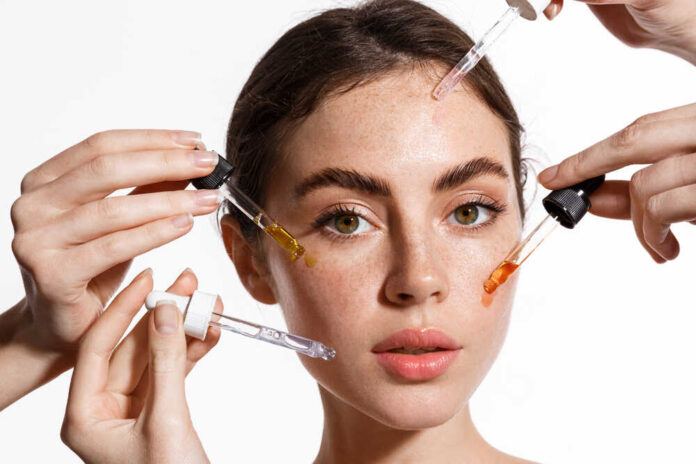
Skincare is a world filled with countless methods, secrets, and rituals, many of which are deeply rooted in tradition and personal experience.
But not everything you hear about taking care of your skin is scientifically backed or healthy. In fact, certain pervasive myths could actually be harming your skin.
In our daily lives, we encounter many such misconceptions that hinder the quest for a healthy and radiant complexion.
Myth #1: Scrubbing Your Face Hard Removes Dirt Better
The Reality: It’s a common belief that more force means a deeper clean. But the skin on your face is delicate, and aggressive scrubbing can cause micro-tears. This leads not only to inflammation and sensitivity but can also disrupt the skin’s natural barrier, making it more susceptible to infections and acne.
What You Should Do Instead: Choose a gentle, pH-balanced cleanser that respects the skin’s natural ecology. Techniques like double cleansing can provide a thorough clean without physical abrasion.
Myth #2: Higher SPF Means More Protection
The Reality: The SPF system can be incredibly deceptive. While it seems logical that a higher SPF provides significantly more protection, the differences are actually minimal beyond SPF 30. In some cases, a higher SPF might actually trick people to be complacent about reapplication, thus reducing its effectiveness.
What You Should Do Instead: Focus on broad-spectrum sunscreens that protect against UVA and UVB rays, and follow best practices for application and reapplication, regardless of the SPF rating.
Myth #3: Sunscreen is Only Necessary on Sunny Days
The Reality: The belief that sunscreen is only required during bright, sunny weather overlooks the fact that harmful UV rays can penetrate clouds and even glass. Up to 80% of UV rays can pass through clouds, and UVA rays, in particular, are present year-round. This can lead to premature aging, hyperpigmentation, and increased risk of skin cancer.
What You Should Do Instead: Incorporate sunscreen into your daily routine, regardless of the weather. Even on overcast days or when indoors near windows, using a broad-spectrum sunscreen with a minimum SPF 30 can offer significant protection against the insidious effects of UV radiation. Look for formulas that can be comfortably worn every day and fit your skin’s specific needs.
Myth #4: Acne is Caused Solely by a Dirty Face
The Reality: The root causes of acne are multifaceted and often misunderstood. Blaming it solely on cleanliness overlooks the complexity of factors such as genetics, hormones, and diet. This myth can lead to over-cleansing, which ironically might exacerbate acne.
What You Should Do Instead: Take a comprehensive approach to acne by considering professional consultations, personalized treatments, and understanding the importance of diet and stress management.
Myth #5: Expensive Products Always Work Better
The Reality: High price tags often reflect branding and packaging rather than the quality of ingredients. This misperception can lead to ineffective routines and wasted money.
What You Should Do Instead: Educate yourself about the specific active ingredients that target your skin concerns and compare them across products, irrespective of price.
Myth #6: Natural Products are Always Better
The Reality: The term “natural” is not only ambiguous but can also be misleading. Some natural substances can be harsh or cause allergies, while synthetic ones are often more stable and effective.
What You Should Do Instead: Focus on well-researched, dermatologist-recommended ingredients, whether natural or synthetic, to ensure they are appropriate for your skin type.
Myth #7: Skin Care Routines Must be Complex to be Effective
The Reality: More is not always better. A complex routine can lead to overuse of products, resulting in skin irritation and diminishing returns. Simplicity often aligns better with skin’s biological needs.
What You Should Do Instead: Identify the essential steps for your skin type and focus on products that serve multiple functions if possible. Simplifying your routine can lead to more consistent use and better results.






















